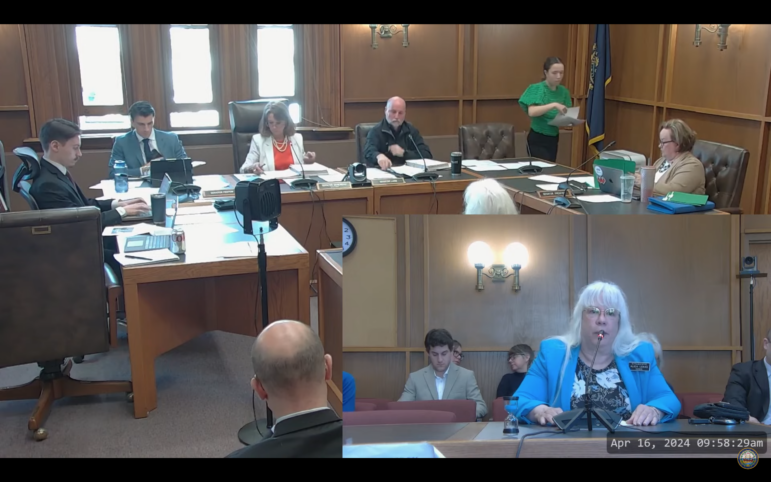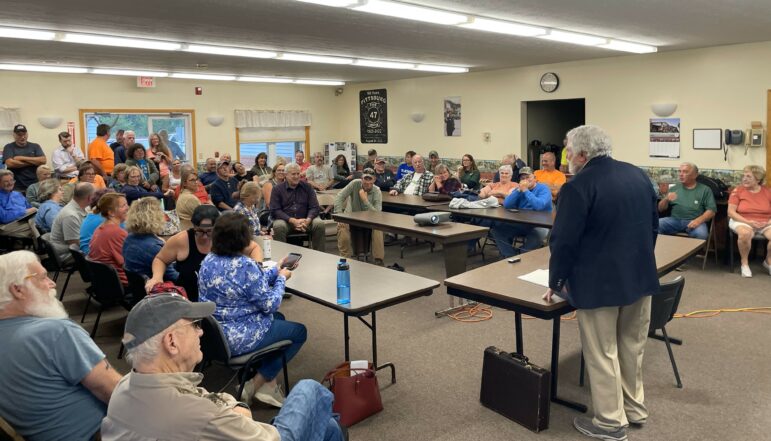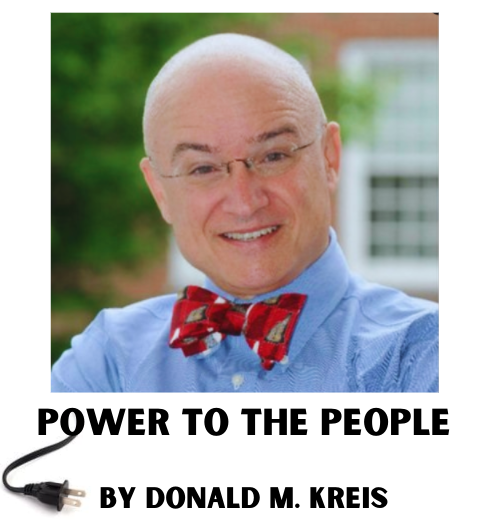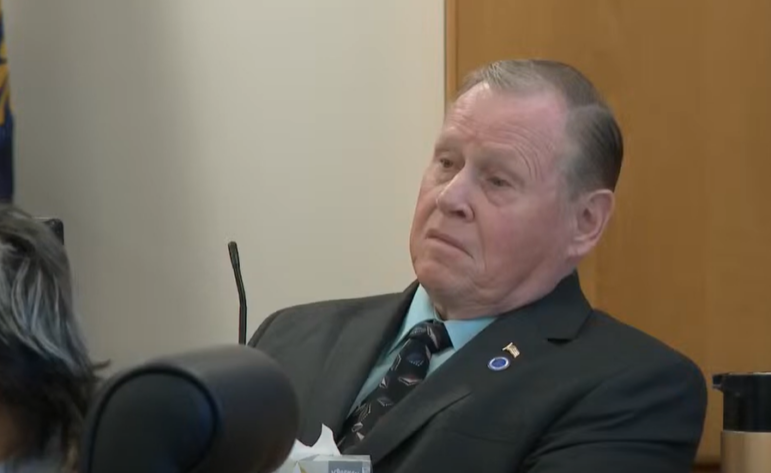Updated Tuesday at 2:40 p.m.: Eversource Energy spokesman Martin Murray said: “As a regulated utility, our rates are based on our costs, including federal taxes. If taxes are reduced, ultimately costs are reduced and that benefits customers.
“I suspect the impact of the federal tax legislation on Eversource will be discussed more comprehensively at the Public Utilities Commission.”
By Nancy West, InDepthNH.org
CONCORD – The state’s consumer advocate wants 13 investor-owned utilities to pass on savings they will reap from the recent federal Tax Cuts and Jobs Act to New Hampshire ratepayers.
D. Maurice Kreis filed the complaint Tuesday with the Public Utilities Commission seeking an investigation and adjudicatory hearing if needed to make sure ratepayers benefit. The Act reduces the corporate tax rate utilities must pay from a maximum of 35 percent to a flat 21 percent rate. Kreis didn’t provide a dollar estimate for the savings.
He did explain that the utilities’ revenue requirements are adjusted upwards to allow them to recover from customers the corporate income tax they pay. President Trump signed the Tax Cuts and Jobs Act on Dec. 22, 2017.
“According to the Edison Electric Institute – the national trade association for regulated electric utilities – this aspect of the Tax Cuts and Jobs Act is ‘a huge win for customers’ in light of ‘the regulated nature of the electric power industry,'” Kreis wrote.
A Washington Post article said that nationally, the potential ratepayer savings amount to “billions of dollars.”
“… the Office of the Consumer Advocate respectfully contends that unless the
Commission immediately directs that each utility pass through any benefits from this
change to the Internal Revenue Code to ratepayers, the rates of these utilities are unjust
and unreasonable within the meaning of New Hampshire law,” Kreis wrote.
Kreis said most if not all of the named utilities accumulate deferred
federal income taxes on their books, to account for differences in timing between
deductions (or credits) for tax purposes and the recognition of such deductions (or
credits) for ratemaking purposes.
“The Commission should investigate and make ratepayers, including residential ratepayers, whole with respect to accumulated deferred income taxes,” Kreis wrote.
The investor-owned utilities named in the complaint are: Abenaki Water Company; Aquarion Water Company of New Hampshire; Energy North Natural Gas Corp. d/b/a Liberty Utilities; Fryeburg Water Company; Granite State Electric Corporation d/b/a Liberty Utilities; Hampstead Area Water Company; Lakes Region Water Company; Northern Utilities, Inc. d/b/a Unitil; Pennichuck East Utility, Inc.; Pennichuck Water Works, Inc.; Pittsfield Aqueduct Company; Public Service Company of New Hampshire d/b/a Eversource Energy; Unitil Energy Systems, Inc.; West Swanzey Water Company.
The complex federal Act could include other windfalls to utilities, he said.
“Accordingly, the Commission should conduct a thorough investigation of the effects on New Hampshire of the Tax Cuts and Jobs Act rather than simply limiting any investigation to the specific grounds cited in this petition,” Kreis wrote.
Eversource Energy spokesman Martin Murray said: “As a regulated utility, our rates are based on our costs, including federal taxes. If taxes are reduced, ultimately costs are reduced and that benefits customers.
“I suspect the impact of the federal tax legislation on Eversource will be discussed more comprehensively at the Public Utilities Commission.”
The PUC could consider Montana’s model in directing all regulated utilities to make a filing that includes a calculation of the change in tax liability the utility will see as a result of the Tax Cuts and Jobs Act and propose how they will pass the savings on to customers, according to Kreis.
South Dakota, Kentucky, Michigan and Ohio are taking similar actions, he wrote.





